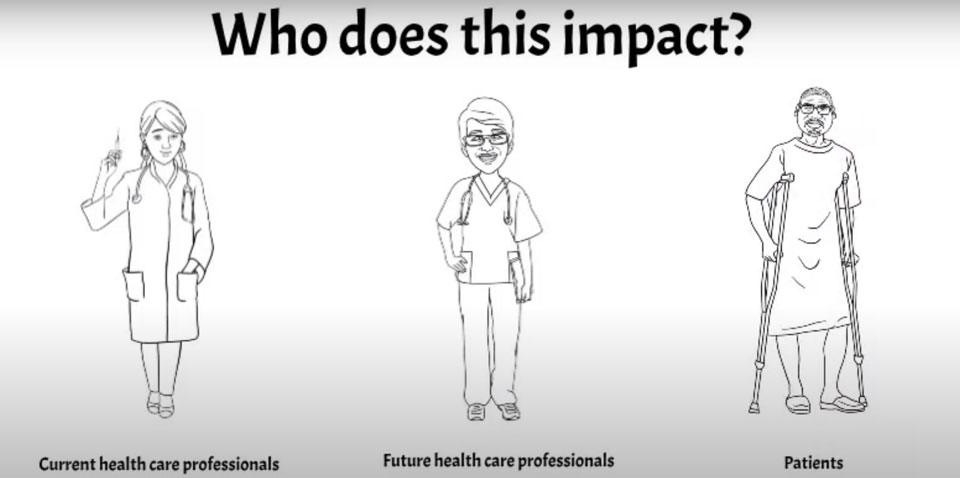
LOS ANGELES—With their contract having expired two weeks ago and talks going nowhere fast, voters among the 24,000 nurses, staffers, and other health care workers at Kaiser hospitals in Southern California authorized a strike by a 96%-4% margin.
The workers, members of United Nurses Associations of California/Union of Health Care Professionals, an AFSCME affiliate, say the key issues are the Kaiser system’s skimpy pay raise offer—1% yearly for the next four years—and its planned imposition of a two-tier pay and benefits scale on new hires, at a time of record profits at a supposedly not-for-profit hospital system.
The union noted that workers whom Kaiser called “heroes” when the coronavirus pandemic hit 18 months ago are now called “targets and liabilities” by their bosses.
The union reported management also flatly refused their offer of a 30-day extension of the current contract to allow talks for a new pact to continue. UNAC’s last offer was for 4% annual raises and no two-tier scale, in pay or anything else. The current pact expired at midnight Sept. 30.
The two-tier proposal for new hires “is the first step in reducing pay for all of us,” UNAC warns.
The union will give Kaiser the legally required 10-day notice before they actually are forced to walk, said Denise Duncan, RN, the union president. Most of the workers in the bargaining unit are RNs.
“We’re concerned about the future of nursing and how we recruit and retain nurses and other health care professionals to serve our communities for years to come. We can no longer sit back and watch the employer continue to dismantle the progress we made in quality patient care and health plan membership growth,” she said.
She also noted Kaiser’s workers, like other health care workers nationally, were deemed “essential” after the coronavirus pandemic officially was declared in mid-March 2020, and that it’s still going, particularly in the Los Angeles area.
And the workers are exhausted, burned out, or both, even before management’s disrespect in the contract talks.
The latest worldwide pandemic tracking data shows that of the 44.57 million people who have tested positive through 8 a.m. Oct. 13, 1.472 million have been in Los Angeles County, the largest figure in the U.S. There have been 368,967 in Riverside County to its east (7th), 361,719 in San Diego (8th), 355,301 in San Bernardino (9th), and 321,147 in Orange (14th).
Wants to slash wages
“Kaiser Permanente—sitting on $44.5 billion in reserves—wants to slash wages for new nurses and depress wages for current workers trying to keep up with rising costs for food, housing, and other essentials,” the union said, introducing details on a video at www.investinpatientcare.com/two-tier-takeaways.
“While healthcare workers fight a devastating Covid surge, Kaiser has proposed an insulting two-tiered wage and benefit system to our union siblings in the Alliance,” adds an ally, the Coalition of Kaiser Permanente Unions. It’s urging its members to sign a petition of protest to Kaiser management. KCPU is an alliance of 28 other union locals with 100,000 workers.
“Shortchanging workers means shortchanging patient care. Healthcare workers are leaving the industry in droves setting off staffing crises everywhere. Devaluing frontline workers will only make things worse,” CKPU says.
“Kaiser has made $11.4 billion in pandemic era profits. Yet, they are still pushing to lower wage rates on average of 26% and eliminate defined contribution retirement benefits for new hires,” it adds. Defined contribution plans are traditional pensions.
Profits aren’t the only big number at Kaiser. While more recent figures were not available, an internet search of CEO salaries for non-profit hospitals turned up a Forbes report in 2019 showing Kaiser’s then-CEO made $10.7 million.
“We may be in different organizations, but we see Kaiser’s game of divide and conquer and are not falling for it. Sign the petition to demand Kaiser do better,” CKPU added.
The skimpy pay, two-tier scale, and benefits cuts will hurt patient care in the long term as well as right now, UNAC says.
“Because of chronic understaffing that Kaiser Permanente refused to fix before the Covid-19 pandemic hit, patient care is at risk. Other health care systems are offering healthy bonuses, incentives, and pay increases. Kaiser Permanente will be unable to recruit and retain health care workers in the middle of a national nursing health care worker shortage.”










